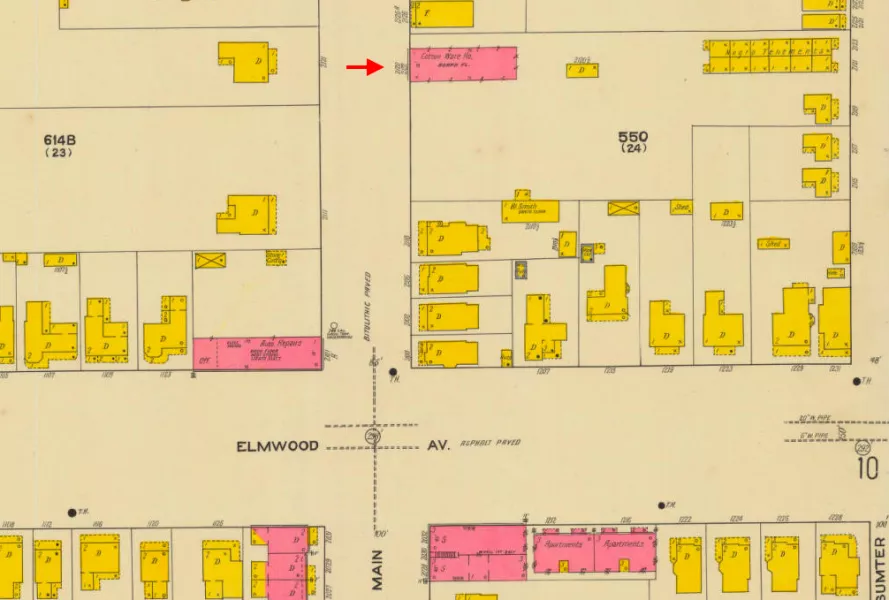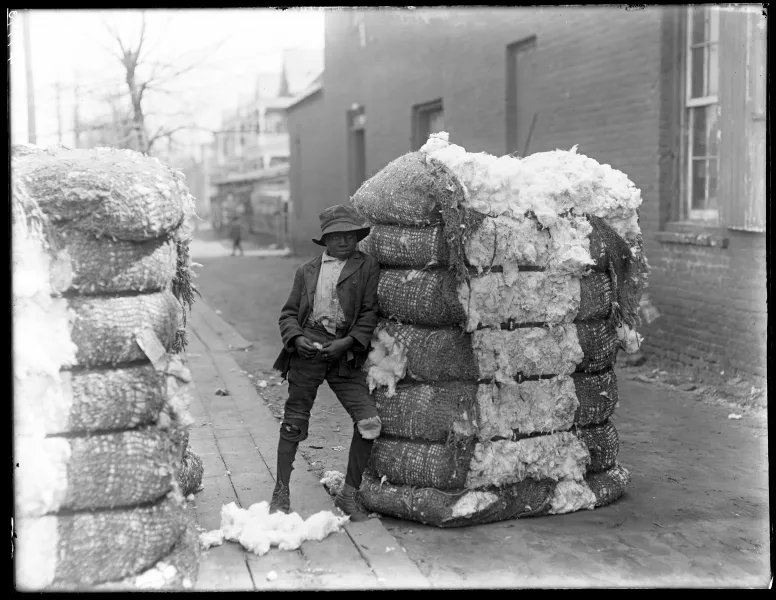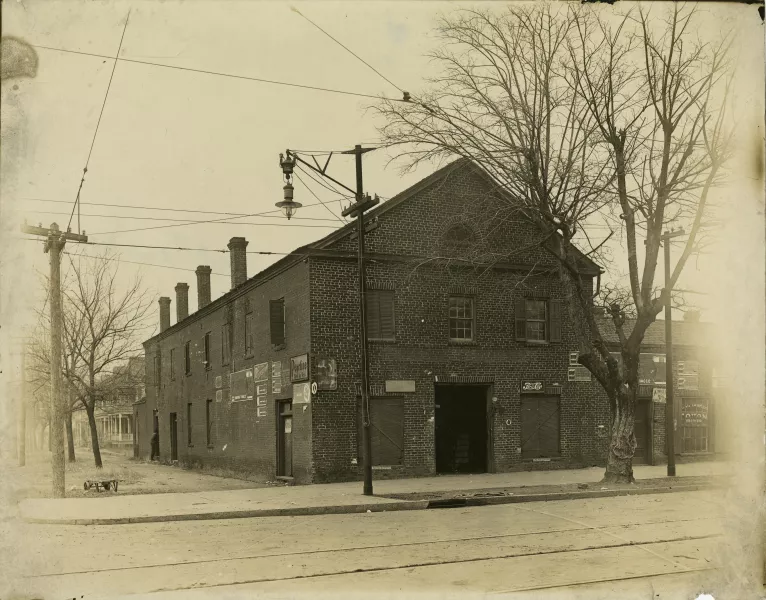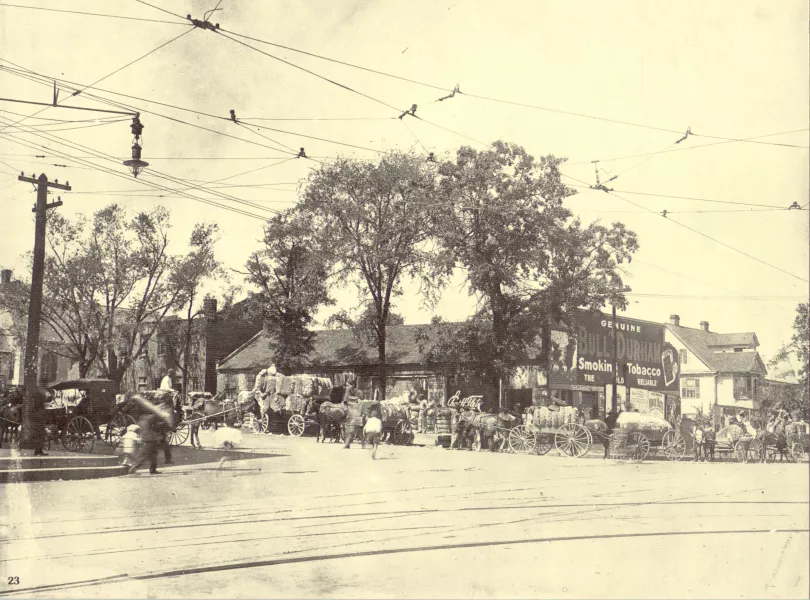2130 Main Street
Site of Cottontown Warehouse
While commercial development continues to anchor Cottontown to its North Main Street boundary, no cotton-related enterprises from which the community drew its name remain. Less than a century ago, warehouses containing the state’s main cash crop were numerous and similar to buildings found farther south on Richardson (Main) Street and within other districts such as today’s Congaree Vista. The neighborhood’s shift from predominately commercial to residential use, brought on by suburbanization, erased these earlier structures. Through historic maps and photographs of other Columbia cotton warehouses, the early history of Cottontown can be better understood.
By the turn of the 20th century, Cottontown’s role as a commercial district had been eclipsed by facilities within other Columbia districts such as this Gervais Street structure formerly located within what today is called the Congaree Vista. The extent to which the area north of Elmwood Avenue had slipped in importance was revealed in an article from The State newspaper on November 16, 1899 regarding a cotton warehouse and general store damaged by fire: “It was one of the last of those warehouses that were used when that portion of the city was the business center. Another relic of Cotton Town has gone. The building was not worth very much being very old.”



